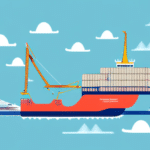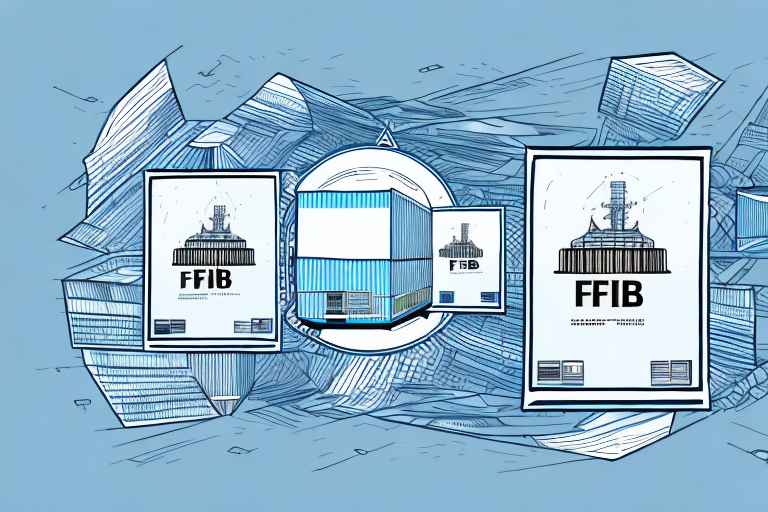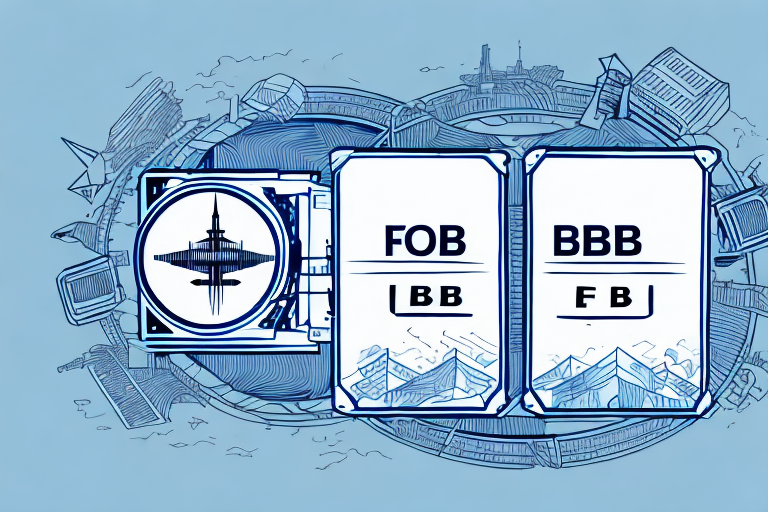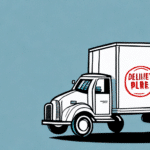Understanding FOB Destination Shipping for Your Business
In the realm of business logistics, shipping goods is a fundamental yet unavoidable expense. Selecting the appropriate shipping method tailored to your business needs is vital for efficiency and cost-effectiveness. FOB Destination Shipping has emerged as a popular choice, particularly among small to medium-sized businesses. This article delves into a comprehensive analysis of FOB Destination Shipping, exploring its advantages and disadvantages, implementation strategies, and critical considerations to ensure informed decision-making for your business operations.
What is FOB Destination Shipping?
FOB, standing for Free On Board, is a term in shipping that delineates the point at which ownership and responsibility of goods transfer from the seller to the buyer. In FOB Destination Shipping, the seller retains responsibility—and bears all costs and risks—associated with transporting the goods until they reach the buyer's specified destination.
Advantages of this arrangement include increased control over the shipment for the buyer, ensuring that goods are delivered to desired locations effectively, which is crucial for businesses with stringent delivery requirements or tight deadlines.
However, FOB Destination Shipping can be costlier for the seller, who must cover all transportation costs and potential damages or losses during transit. Consequently, some sellers opt for alternatives like FOB Origin Shipping, where the buyer assumes responsibility once goods are loaded onto the carrier.
Differences Between FOB Destination and FOB Origin Shipping
The primary distinction between FOB Destination and FOB Origin Shipping lies in the transfer point of ownership and responsibility for the goods.
- FOB Destination: Ownership and responsibility transfer to the buyer upon delivery at the specified destination. The seller handles all transportation risks and costs.
- FOB Origin: Ownership and responsibility shift to the buyer once goods are loaded onto the carrier at the origin point. The buyer assumes transportation risks and costs from that point forward.
FOB Destination is typically favored by buyers seeking assurance of delivery and condition upon arrival, while FOB Origin appeals to sellers aiming to mitigate risks and reduce overheads related to transportation.
For a deeper understanding of shipping terms and their implications, refer to the U.S. Department of Transportation guidelines.
Advantages of FOB Destination Shipping for Your Business
Adopting FOB Destination Shipping offers several benefits:
- Risk Mitigation: The seller assumes responsibility for goods until they reach the buyer's specified location, reducing the buyer's exposure to transportation-related risks.
- Enhanced Control: Buyers can oversee the entire shipping process, ensuring that goods meet their delivery requirements and timelines.
- Customer Satisfaction: Sellers demonstrating responsibility for delivery can foster stronger buyer relationships, enhancing trust and repeat business opportunities.
According to the 2023 Journal of Business Logistics, businesses utilizing FOB Destination Shipping reported a 15% increase in customer satisfaction rates due to improved delivery reliability.
Disadvantages of FOB Destination Shipping for Your Business
Despite its advantages, FOB Destination Shipping presents certain drawbacks:
- Higher Costs: Sellers bear all transportation expenses and potential losses or damages during transit, which can erode profit margins.
- Extended Delivery Times: Sellers may opt for cost-effective, slower shipping methods to manage expenses, potentially delaying delivery to buyers.
- Complex Logistics: Managing transportation logistics until delivery requires meticulous planning and coordination, increasing operational complexity for the seller.
Furthermore, disputes may arise regarding responsibility for damaged or lost goods, potentially straining buyer-seller relationships and leading to legal challenges.
Implementing FOB Destination Shipping in Your Business
To successfully implement FOB Destination Shipping, businesses should follow strategic steps:
1. Partner with Reliable Carriers
Select carriers with robust track records for timely and secure deliveries. Evaluate their capabilities and ensure they can meet your logistical requirements.
2. Comprehensive Documentation
Ensure all shipping documentation, including bills of lading, insurance policies, and customs paperwork for international shipments, is accurately prepared and managed.
3. Cost Analysis
Conduct a thorough cost analysis to account for all transportation-related expenses. Factor these costs into product pricing and profit margin calculations.
4. Contingency Planning
Develop contingency plans to address potential delays, damages, or losses during transit. Establish protocols for swift resolution to maintain customer satisfaction.
Utilizing tools like Supply Chain Management software can streamline these processes, enhancing efficiency and reliability.
Key Considerations for Choosing FOB Destination Shipping
When opting for FOB Destination Shipping, consider the following:
- Type of Goods: Fragile or high-value items may benefit more from FOB Destination arrangements, ensuring enhanced protection during transit.
- Shipping Distance: Longer shipping distances may increase risk exposure, making FOB Destination's risk transfer timing more critical.
- Carrier Reliability: Assess the reliability and performance metrics of potential shipping carriers to ensure they align with your delivery standards.
- Legal and Regulatory Compliance: For international shipments, adhere to destination country's customs regulations, import taxes, and documentation requirements. Failure to comply can result in delays and financial penalties.
Refer to the International Trade Administration for comprehensive guidelines on international shipping compliance.
Common Mistakes to Avoid with FOB Destination Shipping
Avoid these common errors when utilizing FOB Destination Shipping:
- Poor Carrier Selection: Selecting unreliable carriers can lead to delays and damage, impacting customer satisfaction and incurring additional costs.
- Inadequate Documentation: Incomplete or incorrect documentation can result in customs delays and legal issues, especially in international shipping.
- Insufficient Packaging: Failing to properly package goods increases the risk of damage during transit. Adhere to carrier guidelines to ensure secure packaging.
- Lack of Contingency Plans: Without contingency strategies, unexpected issues can escalate, affecting delivery timelines and customer trust.
Best Practices for Successful FOB Destination Shipping
Adopt these best practices to ensure successful FOB Destination Shipping:
- Pre-Shipment Inspections: Conduct thorough inspections before shipping to identify and address potential issues that could affect delivery quality.
- Effective Communication: Maintain clear and consistent communication with carriers and customers to facilitate seamless shipping operations.
- Regular Process Reviews: Continuously evaluate and refine shipping processes to optimize efficiency and address any emerging challenges.
- Leverage Technology: Utilize advanced logistics software for real-time tracking, predictive analytics, and automated documentation to enhance shipping accuracy and transparency.
Negotiating Better Rates for FOB Destination Shipping
To secure favorable rates for FOB Destination Shipping:
- Understand Carrier Pricing Structures: Familiarize yourself with how carriers calculate rates, including factors like distance, weight, and delivery speed.
- Volume Leverage: Utilize higher shipment volumes to negotiate discounts or more advantageous terms with carriers.
- Build Strong Relationships: Cultivate positive relationships with carriers to foster trust and facilitate more flexible negotiable terms.
- Compare Multiple Quotes: Solicit and compare quotes from various carriers to identify competitive pricing and optimal service offerings.
Platforms such as Freightos can assist in comparing carrier rates and services effectively.
Understanding the Insurance Implications of FOB Destination Shipping
Insurance plays a crucial role in FOB Destination Shipping. Since the seller retains responsibility until delivery, robust insurance coverage is essential to mitigate risks associated with damage or loss during transit.
- Carrier Insurance: Review the insurance policies offered by carriers to understand coverage limitations and inclusions.
- Supplemental Insurance: Consider additional insurance policies to cover any gaps in carrier-provided coverage, especially for high-value or fragile goods.
- Legal Compliance: Ensure insurance policies comply with relevant laws and regulations pertinent to the goods being shipped and their destination.
For detailed guidance on logistics insurance, refer to the National Association of Insurance Commissioners.
How Technology is Influencing FOB Destination Shipping
Technological advancements are revolutionizing FOB Destination Shipping, enhancing efficiency, transparency, and reliability:
- Real-Time Tracking: GPS and IoT-enabled devices allow for real-time monitoring of shipments, providing up-to-the-minute status updates to both sellers and buyers.
- Predictive Analytics: Analyzing shipment data helps predict potential delays and optimize routing, improving delivery times and reducing costs.
- Automation: Automated systems streamline documentation, inventory management, and scheduling, minimizing human error and accelerating processes.
- Blockchain Technology: Blockchain enhances supply chain transparency and security by providing immutable records of shipment data, fostering trust among participants.
Implementing these technologies can lead to significant improvements in FOB Destination Shipping operations, providing a competitive edge in the logistics landscape.
Conclusion
FOB Destination Shipping offers businesses a strategic approach to managing shipping logistics by transferring ownership and responsibility to buyers only upon delivery. While it provides significant benefits such as enhanced control and risk mitigation, it also entails higher costs and operational complexities for sellers. By adopting best practices, leveraging technology, and maintaining strong carrier relationships, businesses can maximize the advantages of FOB Destination Shipping, ensuring efficient and reliable delivery of goods. As the logistics industry continues to evolve, staying informed and adaptable is essential for sustaining success in today’s competitive market.






















